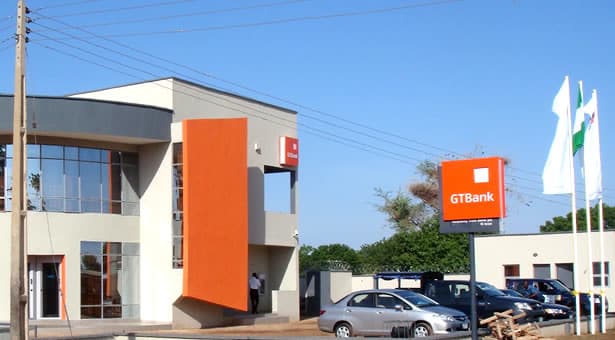Cybersecurity
Stories about technologies, processes, practices, regulations and professionals, dealing with the protection of networks, websites, companies, and personal data from attack, damage, fraud, and unauthorised access.
Top stories

Google Chrome is said to be under attack via a zero-day exploit. NITDA has alerted that the security vulnerability, tagged CVE-2024-7971 is being exploited by attackers, and urged Google Chrome users to immediately update to the latest version.

GTBank issue could be a combination of problems. One expert who spoke to Techpoint Africa, said that it is unlikely that the company’s domain was stolen. Another said customer data could be at risk and here’s why.

Standard Bank has introduced a new security feature to combat vishing fraud, increasingly targeting older individuals approaching retirement. This move addresses the rising cyber threats in South Africa’s banking sector.

WhatsApp has appealed the $220M fine from the Federal Competition and Consumer Protection Commission (FCCPC) for data infringement and discrimination against Nigerian users, citing over 20 reasons for a penalty review.

Did you know WhatsApp was fingerprinting Nigerian users? Device fingerprinting tracks you without consent. Despite enhancing user experience, WhatsApp doesn’t need it. Here are other reasons the FCCPC is suing them for $220m.

The Africa Centre for Digital Transformation warns banks in Ghana using CrowdStrike and Microsoft Azure antivirus of email impersonation threats from cyber attackers. It follows an outage disrupting the operations of CrowdStrike and Microsoft, affecting multiple countries.

The International Criminal Police Organisation (INTERPOL) has cracked down on several cyber criminals in West Africa resulting in multiple frozen accounts and seized assets, including over 300 arrests.

In June 2024, CheckPoint’s Global Threat Index ranked Ethiopia as the most attacked African country with a Normalised Risk Index (NRI) of 99.0, placing second worldwide. Zimbabwe followed closely, ranking third globally with an NRI of 78.1.

In Ghana, 51 cybersecurity industry players have been granted licenses and accreditation amid a staggering 997% surge in data breaches from Q4 2023 to Q1 2024, totaling 1.2 million breaches.

South Africa’s Department of Public Works and Infrastructure has suffered losses exceeding $16 million due to cyber attacks over the past decade, amid speculation of possible collusion between officials and criminals.

The Nigeria Computer Emergency Response Team (ngCERT) has revealed its efforts to combat the increasing number of ransomware attacks aimed at cloud service providers based in Nigeria.

South Africa is still dealing with the effects of the National Health Laboratory Service’s security breach, which has caused delays in lab test results and put patients at risk in many health centres.

The Ghana Cybersecurity Authority (GCA) has reported that 38 digital lending mobile applications are engaging in cyberbullying, with 130 incidents reported in 2024, indicating a resurgence of such cases.

First National Bank (FNB) in South Africa has warned digital wallet users about the rising threat of phishing attacks targeting them.

Paradigm Initiative, a digital rights organisation, has implicated AnyVerify in a data breach involving the commercial sale of personal information of Nigerians online for ₦100.

After losing ₦685 million to fraud in 2023, Wema Bank is stepping up its security game by partnering with Daon, an international digital identity trust company, to launch facial recognition technology for its customers.

What’s really going on at Patricia? Exclusive insights from ex-employees within Patricia’s cybersecurity team, and other internal sources, shed light on concerning revelations about the company’s transparency with its customers.

Following the recent debit card fraud incident that targeted and defrauded Kenya-based Equity Bank of $2.1 million, 19 suspects have been arrested.

Wema Bank reports ₦685 million (~$595,000) lost to fraud and forgery in 2023. Meanwhile, Access Bank earlier reported losses of ₦6.15 billion from fraud and forgery.

Access Bank, a commercial bank subsidiary of Access Holdings Plc, reported a loss of ₦6.15 billion due to fraud and forgery in 2023, up from ₦1.44 billion in 2022.
